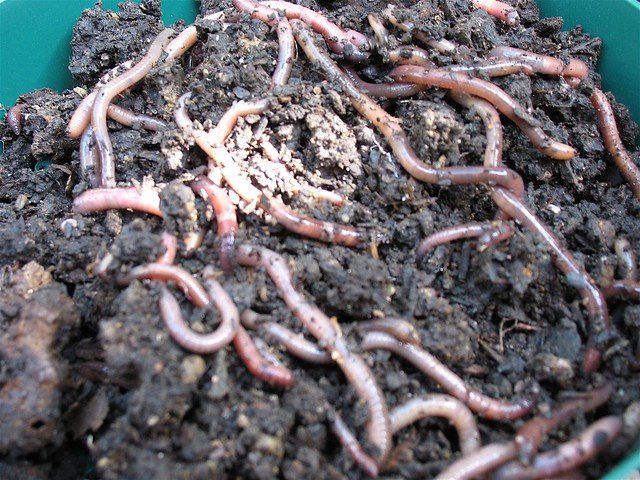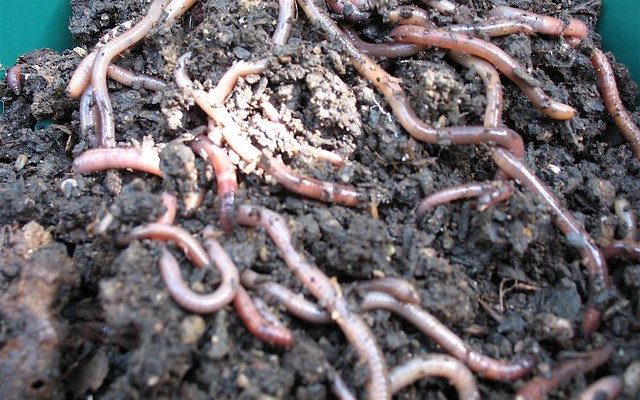
Let’s dive into the world of earthworms and understand just how they thrive (or don’t) in these elevated plots of soil. It’s kind of like asking if a fish can live in a bowl—there are a few essential factors to consider!
Understanding Earthworms’ Role in the Garden
Earthworms are often called nature’s recyclers. They munch on organic matter like dead leaves and roots, breaking it down into rich, nutrient-dense soil known as **humus**. This humus improves soil structure, enhances drainage, and increases moisture retention—basically, a buffet for your garden plants.
In a raised garden bed, the presence of earthworms can be a game-changer. They help aerate the soil, allowing roots to grow deeper and access more nutrients. Plus, their natural movement creates burrows that act as channels for water and air. So, the more earthworms, the better for your garden!
But here’s the thing: not all raised garden beds are created equal. The material and soil you choose can influence whether these little wrigglers decide to move in.
Types of Raised Garden Beds
There are different types of raised garden beds you can choose from, and each can impact earthworm survival differently. Here’s a quick rundown:
- Wooden Beds: Generally, these are the most common. If you’re using untreated wood, it can break down and provide habitat for worms. However, be careful with treated wood, as some chemicals can leach into the soil.
- Metal Beds: These are stylish but can heat up quickly. While earthworms can survive in them, extreme heat might drive them deeper or even out.
- Concrete Blocks: These provide a stable structure but can limit airflow. If your soil is too dense or compacted, worms may find it hard to thrive.
- Fabric or Plastic Beds: Also known as “grow bags,” these can retain moisture well, making them attractive for earthworm residents. However, make sure there’s good drainage to prevent drowning.
Choosing the right material not only shapes the aesthetics of your garden but also directly affects your soil’s ecosystem.
Soil Quality and Earthworm Health
The soil in your raised garden bed is like a buffet for earthworms. The more diverse and organic the materials, the happier the worms. If the soil is made of quality compost, it becomes a worm paradise. Worms love decomposed leaves, grass clippings, and kitchen scraps. This mix adds nutrients and helps maintain moisture levels.
But if your soil is too sandy or heavy with clay, earthworms may struggle. Sandy soil drains quickly, leaving worms thirsty, while clay can suffocate them by retaining too much water. So, you want to strike a balance. Ideally, a blend of different soil types with ample organic matter is best.
If you’re unsure about your soil quality, a simple test can give you insights. Grab a handful of soil, squeeze it, and see if it holds together. If it clumps like dough, it’s too compacted for worms.
Climate Considerations for Earthworms
Like us, earthworms have their preferences when it comes to weather. They enjoy moist environments but can be sensitive to extreme temperatures. In warmer climates, raised garden beds can heat up faster, making it hard for worms to survive during hot spells. Conversely, too much rain can flood the beds, drowning them.
If you live in a region with harsh winters, you’ll find that most worms are not fans of freezing temperatures. If your raised bed isn’t insulated, the worms might retreat deeper or die off in the cold.
To keep earthworms happy, consider adding mulch to your garden beds. It can help regulate temperature and retain moisture—perfect for keeping your wriggly friends comfy.
How to Encourage Earthworms in Your Garden
If you want earthworms to thrive in your raised garden beds, you can take a few simple steps. Honestly, it’s like giving them VIP treatment.
Here are some tips to create an inviting environment:
- Add Organic Matter: Regularly mix in compost, aged manure, or leaf litter. It will provide food for the worms and improve soil quality.
- Avoid Chemicals: Pesticides and chemical fertilizers can harm earthworms. Opt for natural alternatives whenever possible.
- Keep Soil Moist: Ensure you water your garden appropriately. Earthworms need moisture, but too much can be as deadly as too little.
- Be Gentle: If you’re tilling or digging, be cautious. Earthworms are delicate creatures, and rough handling can injure them.
By following these steps, you can create a thriving ecosystem in your raised bed that benefits both your plants and earthworms.
Common Issues with Earthworms in Raised Beds
While it may sound simple to keep earthworms happy, there are a few common issues you may face:
- Overwatering: Too much water can drown earthworms. Ensure your raised bed has proper drainage.
- Soil Compaction: If you walk on your raised bed too much, the soil can become compacted. This makes it hard for earthworms to move around and access food.
- Extreme Temperatures: As mentioned earlier, extreme heat or cold can push earthworms out of their habitat. Using mulch and shading can help moderate temperature extremes.
Being aware of these challenges means you can tackle them before they impact your garden’s health.
So, do earthworms survive in raised garden beds? The answer is a resounding yes, provided the conditions are right. These little guys are key players in maintaining a healthy garden ecosystem, and with just a bit of care, you can create the perfect home for them.
Remember, the type of raised bed, soil quality, climate, and your gardening practices all play vital roles in whether earthworms will thrive. By fostering an inviting environment, you not only benefit your garden but also create a miniature ecosystem that’s both fascinating and beautiful to watch grow.
So the next time you dig into your raised garden bed, take a moment to appreciate the worms working hard beneath the surface. They are the unsung heroes of your garden, making it flourish in ways you might never fully see. Happy gardening!

